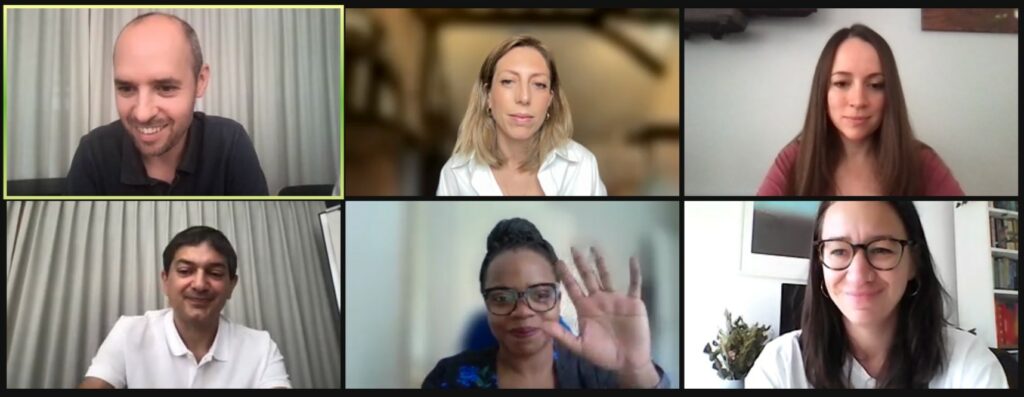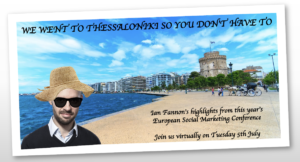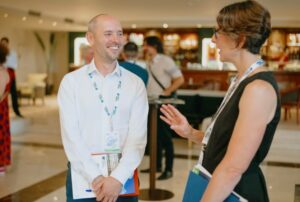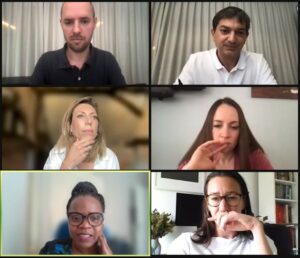We went to Greece with a thirst for (social marketing) knowledge…

We had over 100 people register for the latest in our series of behaviour change briefings. We took the opportunity to share three examples of the work we’d recently presented at the European Social Marketing Conference in Greece. Whilst there was variation in the nature of the work that we shared, we were keen to highlight the transferable techniques and learnings across the presentations that could be applicable to a broad audience.

As I attended the conference in person, not only was I subject to very embarrassing marketing materials (see above) but I also hosted our event. I, alongside Dr Josephine Ruwende, Cancer Screening Lead with NHS England Improvement London, shared the work we’ve done concerning cancer screening communications in London. I talked through the process that was followed to identify the different audiences and the different channels, messages and messengers that those audiences would be most likely to respond to. This process helped to refine and prioritise the work to be done. Narrowing the scope is an important exercise to avoid spreading the work too thinly and diluting potential impact.

Next, we heard from Lucy Proudfoot who walked us through our work on Flexappeal – which is all about campaigning for greater flexible working. Lucy highlighted a key inspiration behind the approach: Positive Deviance theory – this does away with the idea that ‘experts know best’ and instead looks for people within a community of organisation who have already found a solution that works for them. We applied this approach by seeking out employers who were already doing flexible working and could act as inspiration for others (referred to as ‘bright spots’). Lucy also reflected on the need to pivot the work as lockdown and forced work from home practices came into play overnight. She explained that the focus then became about ensuring flexible working was sustainable.

Following on from this was Ana Granger who was joined by Kate Sanger, Head of Policy and Communications at Jo’s Cervical Cancer Trust to give an overview of a research project looking at how Covid-19 affected attitudes to cervical screening. The presentation highlighted that fear relating to Covid created additional barriers on top of pre-existing ones. In response to these findings, resources were created which helped to provide reassure on what to expect when attending cervical screening during the pandemic.
Before moving on to questions, I wrapped up the presentations with three takeaways from the conference in Greece, most notably that co-design almost always improves outcomes. You can learn about our co-design approach ‘CO-LAB’ here.
If you missed the event or want to re-watch it, you can find the recording below. You can also connect with us on Twitter, LinkedIn or sign up for our Claremail newsletter to hear about future events.
